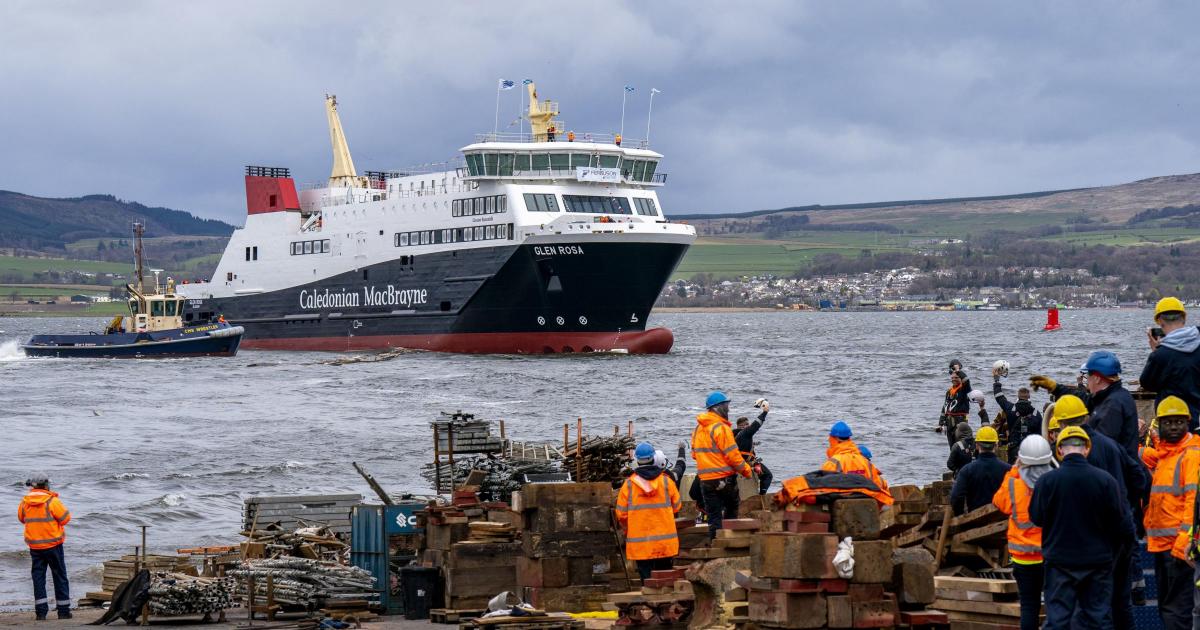
The shipbuilding industry in the UK has long been a key pillar of engineering and innovation, but recent challenges have highlighted the urgent need for transformation and sustainable growth. The story of Ferguson Marine’s MV Glen Rosa is emblematic of both the hurdles and opportunities facing the sector today.
MV Glen Rosa: A Symbol of Engineering Excellence and Challenges
Launched in April, the MV Glen Rosa has become a focal point in discussions about the future of UK shipbuilding. Despite its delayed delivery and associated costs, the vessel stands as a testament to the impressive technical achievements of the Ferguson Marine team. However, these delays and cost overruns underline broader systemic challenges that must be addressed to ensure the industry’s long-term viability.
The Glen Rosa’s journey serves as a reminder of the complexity and skill involved in modern shipbuilding. As the ship undergoes its final interior fit-out, it is crucial to acknowledge both the successes and the lessons learned from its construction.
Strategic Directions for UK Shipbuilding
In recent months, key policy documents have been released by the UK government, including the Strategic Defence Review (SDR) and Modern Industrial Strategy. These strategies underline the importance of fostering a robust shipbuilding sector, particularly in light of increasing global geopolitical tensions.
One key takeaway from these strategies is the need for a balanced approach to public procurement. For example, the recent £160 million contract for seven small electric ferries awarded to a Polish yard sparked significant debate. Critics argue that greater consideration for “social value” — emphasizing local economic and community benefits — must be integrated into the bidding process to create a level playing field for UK firms.
The Economic and Social Impact of Shipyards
Shipyards like Ferguson Marine play a critical role not only in providing high-quality employment but also in driving regional economic growth. However, to sustain these benefits, shipyards need a steady pipeline of projects that include the design, fabrication, and delivery of entire vessels. Module-building projects, while valuable, cannot fully utilize or grow the diverse skill sets required for large-scale ship construction.
As highlighted by industry leaders, public investment in shipbuilding must prioritize long-term sustainability. For instance, the upcoming replacement project for the MV Lord of the Isles—a ship constructed 35 years ago by Ferguson Marine—represents a pivotal opportunity to demonstrate the value of direct awards and sovereign capability under the Procurement Act 2023.
Looking Ahead: A Sustainable Future
To strengthen the UK’s shipbuilding capacity, a comprehensive approach is necessary. Policymakers must not only consider economic factors but also the role of shipbuilding in national security and resilience. By fostering a stronger network of shipyards and increasing the number of commercial vessels built domestically, the UK can better prepare for future challenges while preserving key engineering skills.
For those inspired by the craftsmanship and innovation of shipbuilding, consider supporting brands that value sustainable industries. For instance, explore the Sperry boat shoes collection, a nod to nautical heritage and timeless design.
In conclusion, the evolution of UK shipbuilding is not merely an economic imperative but a strategic necessity. By investing in skills, innovation, and sustainability, the sector can secure its place as a cornerstone of British engineering for generations to come.






